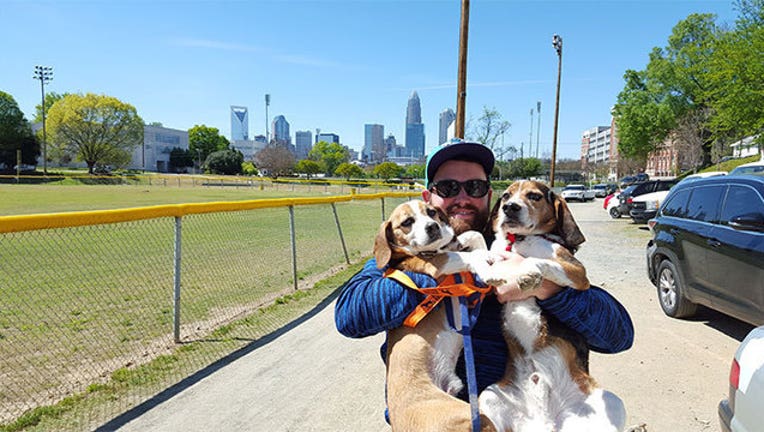Study shows dogs don't like hugs

CHARLOTTE, NC (WJZY) - New data shows that hugging your dog raises its stress and anxiety levels, according to University of British Columbia psychology professor Stanley Coren.
Dogs are designed for swift running, according to Professor Coren. He said in times of stress or threat the first line of defense that a dog uses is not their teeth, but their ability to run away. Behaviorists believe not allowing a dog to do so by immobilizing them with a hug can increase their stress level.
If the dog's anxiety increases it could result in biting.
The most common sign of anxiety in a dog is when they turn their head away or sometimes closing their eyes fully or partially, according to Professor Coren.
Dogs will show a "half-moon eye" or "whale eye" where you can see the white portion of the eyes at the corner or the rim.
Professor Coren said when the dog's ears are lowered or slicked against the side of their head is another sign of anxiety. Lip licking or licking a person's face can also be signs of anxiety as well as yawning or raising one paw.
Professor Coren looked at 250 pictures of people hugging dogs. Each picture received one of the three scores below:
- One could judge that the dog was showing one or more signs of stress or anxiety;
- One could judge that the dog appeared to be relaxed and at ease;
- One could decide that the dog's response was ambiguous or neutral. Two examples of dogs that scored as being stressed while they were in the process of being hugged appear below.
In all 81.6% of the photographs Professor Coren researched showed dogs who were giving off at least one sign of discomfort, stress, or anxiety. Only 7.6% of the photographs could rate as showing dogs that were comfortable with being hugged.
Professor Coren said 10.8% of the dogs were neutral or showed ambiguous responses.
More than four out of five dogs find the human expression of affection to be unpleasant and or/anxiety arousing, according to Professor Coren.
View the full study here.

